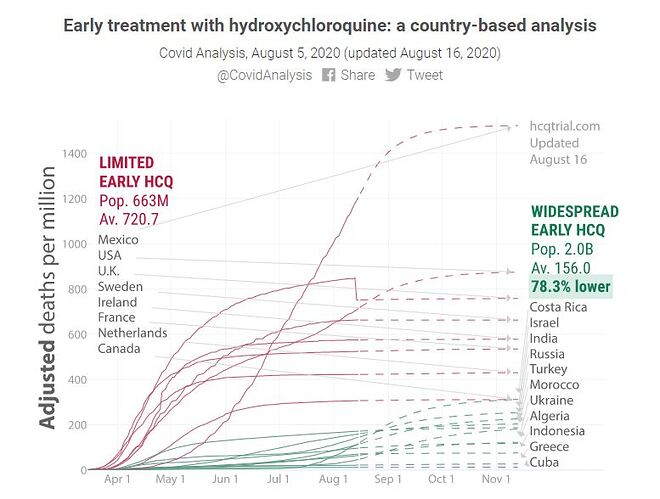Looking through the posts above, I’d make a few short comments:
@Kieran_Telo, on the subject of PCR tests. I think there is a “right” way to use these tests to combat the disease. That is, they get used in combinations with a smart track and trace system to identify who the most effective target test group should be. Those who are tested and show a positive result on less than 30 cycles, should then quarantine (with full support) for 14 days. Sure, in this way you will get some people who would not have developed the disease or might not have been contagious, but with this level of caution it has been shown that (a) the rest of society functions perfectly normally and (b) this will aggressively keep the virus in check. Personally I would have zero problems with this system, and it’s the one that IS have been recommending. Used in this way, the dreaded PCR would have been an excellent tool in the efforts to minimise the impact of covid. Unfortunately it wasn’t.
@Willem - you are right that this can only be an interesting side by side, not a scientific comparison. Other factors will obviously play a role, but I still feel the greatest impact will not be accidental, but will depend on what efforts the government had selected to protect the population.
Cuba made a huge effort to protect its citizens. Local track and trace, community health workers checking in daily, quarantine and effective treatments for anyone who got ill. This is the Indy SAGE policy. Sweden (and more generally Great Barrington) did almost none of that as the stated goal is to allow the virus to spread as fast as it can through the unprotected population, whilst trying to protect only the most vulnerable.
That factor must definitely have had the largest impact on the course of the virus through a population. Sure, there are many other factors, but the choice to protect or not is the primary. Others seem to be second order effects at best.
On the subject of Haiti, even some like myself who repeatedly uses highly dodgy data to support their arguments, balks at the Haiti data. Haiti is a totally collapsed country without a functioning health service. People there have to pay for covid tests, and the cost is more than the vast majority can afford. It might be true that Haiti has fewer cases/deaths than Cuba, but I seriously doubt it.
Comparing Cuba to Sweden is not as crazy as it sounds in terms of population, access to healthcare, healthy living etc. The biggest difference is sunshine as @PatB pointed out, but that, again, feels like a second order effect as other equally sunny places have been hit tremendously. Govt policy seems the key driver, and socialist healthcare beats laissez faire healthcare all day long.
On the point of quarantining healthy people I see three options:
1 -zero quarantines, let the virus rip (maybe try and protect a particular group of “vulnerable”)
2 - targeted 2-week quarantine of a subgroup discovered through track and trace
3 - full blown lockdowns of the entire population whether tested or not, at risk or not
Option 2 feels like the best compromise to me. And the point of this thread is to point out that the countries which have done best thorough all this have all followed option 2. Option 3 is clearly bonkers but from the Swedish data, option 1 is almost indistinguishable from option 3, as many people predicted.

